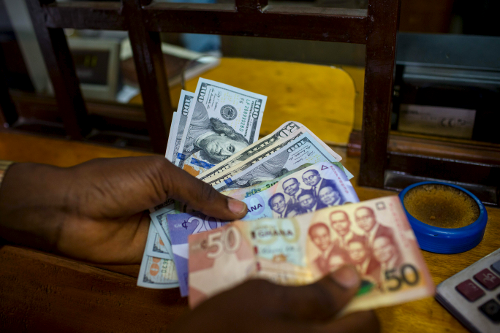Moody’s Upgrades Ghana’s Credit Rating On Debt Restructuring Progress

TLDR
- Moody’s upgrades Ghana's foreign currency rating from Caa3 to Caa2, with a positive outlook.
- Ghana restructures $13.1 billion in Eurobonds, leading to a 37% reduction in claims and extended bond maturities to 2037.
- Bilateral debt restructuring under G20 Common Framework eases financial pressure, with public debt expected to decrease to 81% of GDP in 2024.
Moody’s has upgraded Ghana’s foreign currency rating from Caa3 to Caa2 and shifted the outlook from stable to positive. The upgrade reflects Ghana’s ongoing efforts to restructure its debt, particularly its recent reorganization of $13.1 billion in Eurobonds.
As part of the restructuring, investors accepted a 37% reduction in their claims, and some bond maturities were extended to 2037. This replaced 15 Eurobonds with five new ones under more favorable terms.
In addition to Eurobond restructuring, Ghana restructured its bilateral debt under the G20 Common Framework, easing pressure on its finances, which have been under strain since the country defaulted in early 2023. As a result, public debt is expected to decrease to 81% of GDP in 2024, down from 87% in 2023 and 93% in 2022.
You can follow Daba’s reporting on Africa on WhatsApp. Sign up here
Key Takeaways
Moody’s outlook contrasts with Fitch, which recently maintained Ghana’s rating, citing outstanding external debt that has yet to be restructured. Credit ratings assess a country’s ability to repay its debt and reflect its economic stability. Agencies like Moody’s and Fitch assign these ratings, influencing investor confidence. A higher credit rating indicates lower risk, making the country more attractive for foreign investment, potentially leading to lower borrowing costs for the government. Conversely, a downgrade signals higher risk, causing investors to demand higher returns or avoid lending altogether. Foreign investors closely monitor these ratings when making decisions about sovereign bonds, infrastructure projects, and direct investments. Upgrades often lead to increased capital inflows, while downgrades can trigger capital flight, higher interest rates, or stricter borrowing terms, which can further strain a country’s economy and hinder growth.

Next Frontier
Stay up to date on major news and events in African markets. Delivered weekly.
Pulse54
UDeep-dives into what’s old and new in Africa’s investment landscape. Delivered twice monthly.
Events
Sign up to stay informed about our regular webinars, product launches, and exhibitions.




